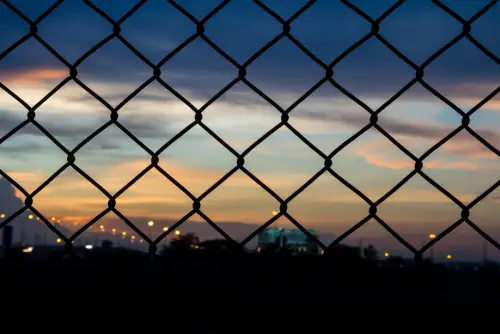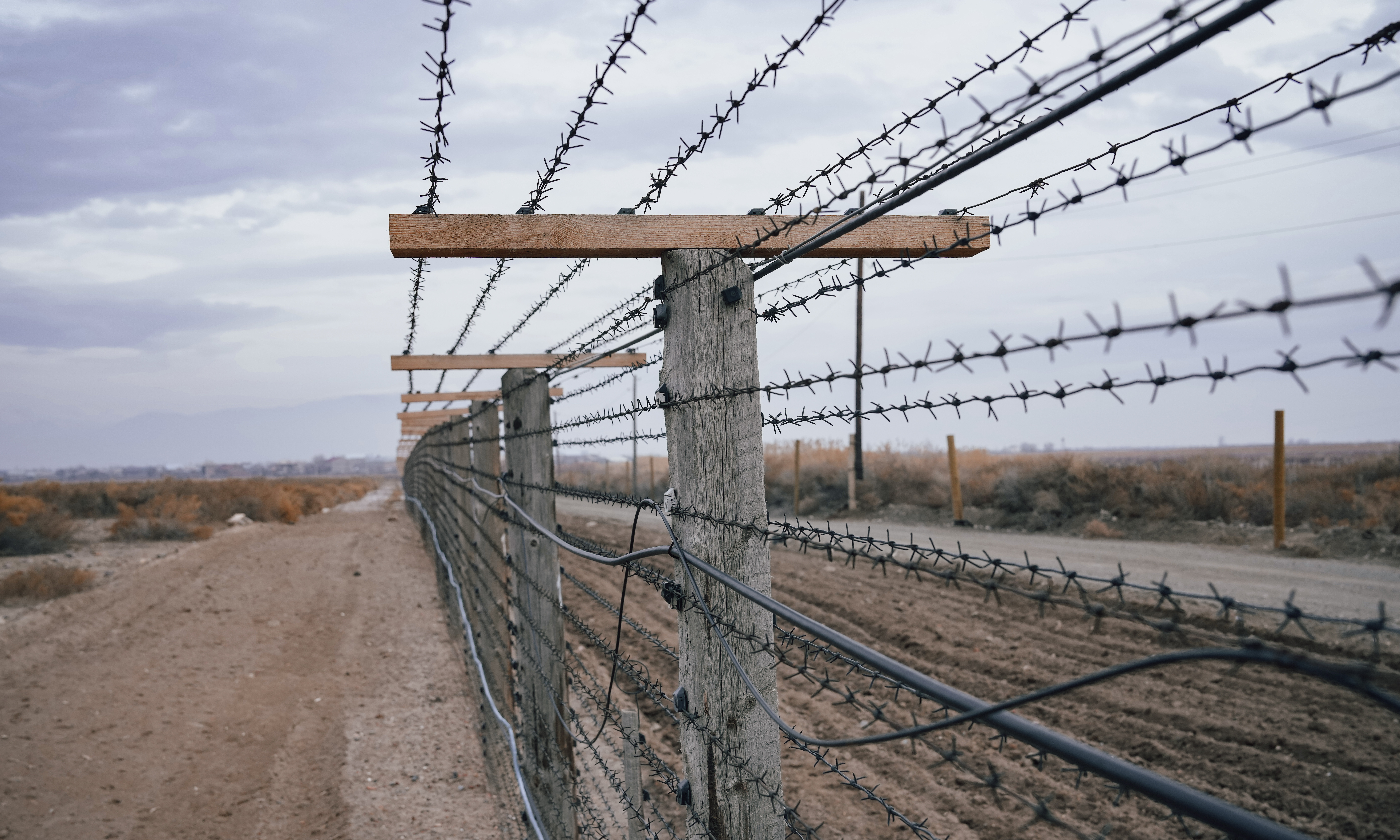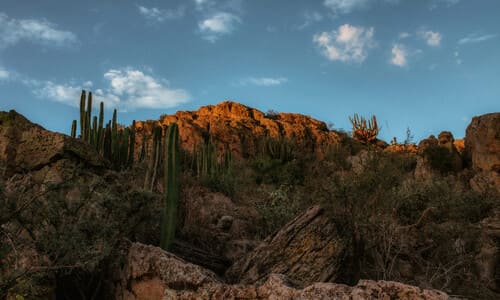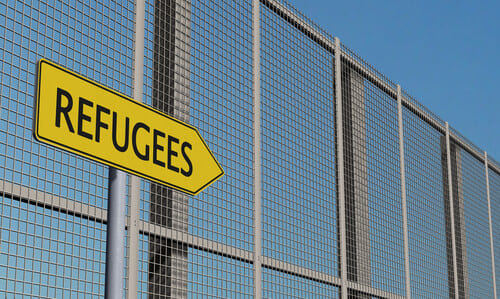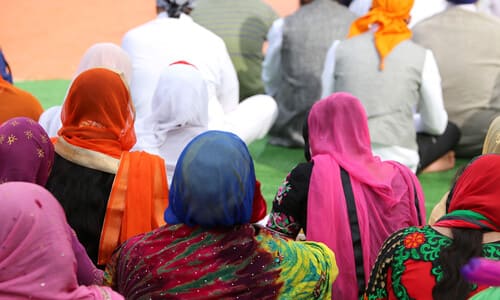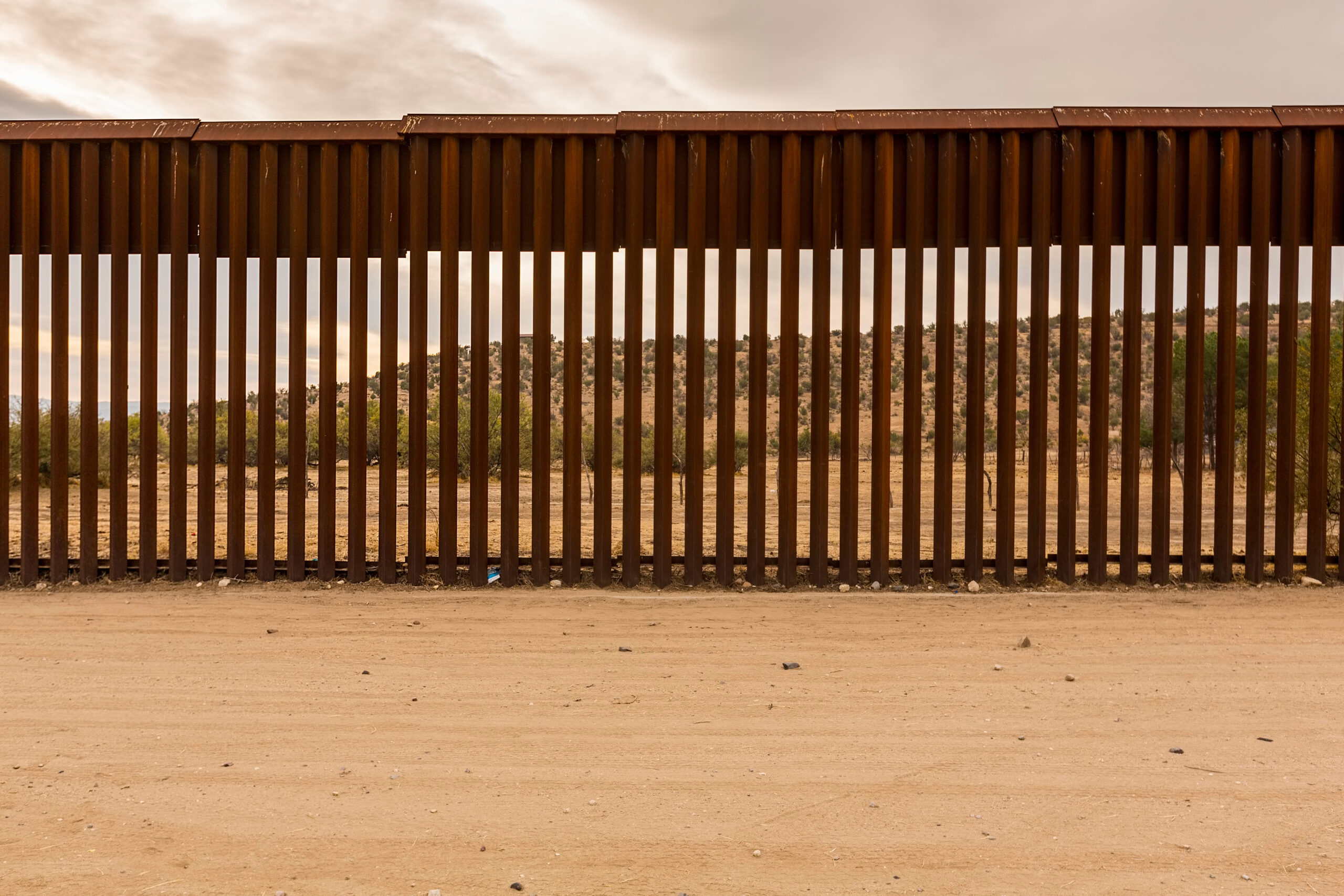In the wake of a dramatic increase in migrants seeking asylum in the United States, there has been no shortage of tragic stories. Many families face the worst outcomes on their trip to reach the border: extortion, robbery, kidnapping, assault, mutilation, and murder. Those who make it to the border may then face a new range of dangers, including the harsh climate of the American South.
So when a story broke in 2019 about a six-year-old dying of heat stroke while crossing the Arizona Desert with her family group, the headline read tragic but also familiar. However, there was one unexpected element that captured the public’s attention: the girl was Indian.
What caught the public — and many immigration experts — by surprise is that there is an increasing trend in migrants coming not from Latin America but from India. Many Indians are fleeing the rise in violent persecution and “strong-arm” tactics being used by extremists who sympathize with the current BJP ruling party’s staunchly Hindu-supremacist objectives.
Others are simply reading the writing on the wall: India no longer offers the opportunities they seek, and before things get worse, they want to go to the United States — the country famous for its acceptance of people of varying backgrounds and beliefs.
Rise in Sikh, Indian Asylum Seekers Coincides With Overall Spike in Border Crossings
Many Americans (at least those who pay attention to legitimate news sources) understand that the story of unauthorized border crossings is far different in the 21st century compared to the 20th. When border crossings skyrocketed in the 90s, most entrants were adults seeking to boost their work income. But by 2007, the majority of undocumented U.S. residents had entered the country legally and then stayed beyond their temporary visas. With the 2009 recession, the prospect of entering the country just to send a paycheck back home became less appealing, and the undocumented immigrant population began to fall.
Then, a new trend emerged. Growing instability in Central and South America displaced millions, spurring many to seek entry to the United States under the possibility that they may be permitted to reside under the asylum program. Most of these migrants were families with young children, fleeing countries experiencing gang warfare, political unrest, and economic devastation. Instead of dodging agents at the border, these families would seek them out, surrendering themselves and then applying for asylum as a deportation defense.
As CBS News reported in April 2023, “the unprecedented levels of migrant apprehensions recorded along the U.S.-Mexico border over the past years have coincided with a historic displacement crisis in the Western Hemisphere, where countries beset by economic and political tumult, such as Venezuela, have seen record numbers of their citizens flee north.”
Border encounters of families and unaccompanied minors soared from 2010 onward, and as they did, a booming underground industry of smuggling people up through Central America grew with it. An entire network of backdoor flights, bus routes, and grueling hiking trails leads from countries like Panama, El Salvador, and Guatemala into Mexico. Once in Mexico, families continue to face dangers, with some individuals being kidnapped or even massacred. Without a home to return to or anyone to protect them, these aspiring asylum seekers are regularly preyed upon.
How a Sikh Girl Ended Up in the Arizona Desert
Despite their dangers, migration services offer a promise: a high chance of reaching the U.S. border. There, the belief goes, all troubles will have been made worth it.
Except many are unable to make the last mile, including seven-year-old Gurupreet Kaur. She died of heat exposure in 108° weather while crossing the Arizona Desert after entering the U.S. from Mexico. Like others who made the journey, the family made a long trek from Central America up through Mexico and into the United States. The girl was left with others while her mother went to fetch badly needed water. The mom got lost and was tracked by Border Patrol agents following their footprints. Following the instructions of the mother, the Border Patrol agents were able to locate the girl’s body, long after she died of hypothermia, just a mile from the border.
Many families and individuals in India are led to migrate by offers from criminal networks, often made from seemingly innocent fronts like tea carts. Chasing the promise of a better life — and an escape from growing dangers at home — these families will often sell everything they have in order to put up the tens of thousands of dollars they need to buy their trip to Central or South America.
Riding what’s known as “Donkey Flights,” families leap-frog through several countries, taking advantage of lax entry laws regarding layovers. They can then disembark, often in South America, and then travel using whatever means they have available up through Central America to reach Mexico.
Many Indian asylum seekers are fleeing persecution, especially Muslims, Sikhs, Christians, and LGBTQ individuals. However, some asylum seekers are simply pursuing a new opportunity, one they could only acquire through the asylum system. They are encouraged by their smuggler “benefactors” to concoct a story of a credible fear they face back at home.
This rise in fraudulent credible fear reports muddies the waters in a way that “definitely obscures and endangers the authentic asylum-seekers that are able to — by some miracle — make it to the U.S. and file applications for relief,” in the words of Deepak Ahluwalia, head attorney at Singh Ahluwalia Attorneys at Law, shared with NPR back in 2020.
The NPR report also recounts how Ahluwalia “worries that amid the humanitarian crisis over migrants from many countries on the U.S.-Mexico border, U.S. authorities are incorrectly or unfairly overlooking some with credible persecution claims, including Indian Sikhs.” NPR further notes in the report how Ahluwalia “has represented other asylum-seekers who say they’ve been persecuted in India for being gay, lower caste or Muslim.”
Find Representation and Assistance on Your Journey to Reside in the United States
For families seeking asylum, reaching the United States is never easy. Remaining here is often just as difficult, as many arrivals face harsh detention conditions, skeptical interviewers, and other setbacks.
Singh Ahluwalia Attorneys at Law can represent you and your family at this last stage of your journey. We have helped hundreds of thousands of individuals take on the American justice and immigration system, enabling them to reside here against all odds. Many are able to avoid deportation through asylum, but there are other options available, including withholding of removal and the Protection of Women from Domestic Violence Act.
Learn about your legal options, and find someone to help expedite your case while protecting your rights when you speak to our asylum lawyers in California during a confidential, no-risk consultation. Call (559) 878-4958 or contact us online to schedule your case review today.

